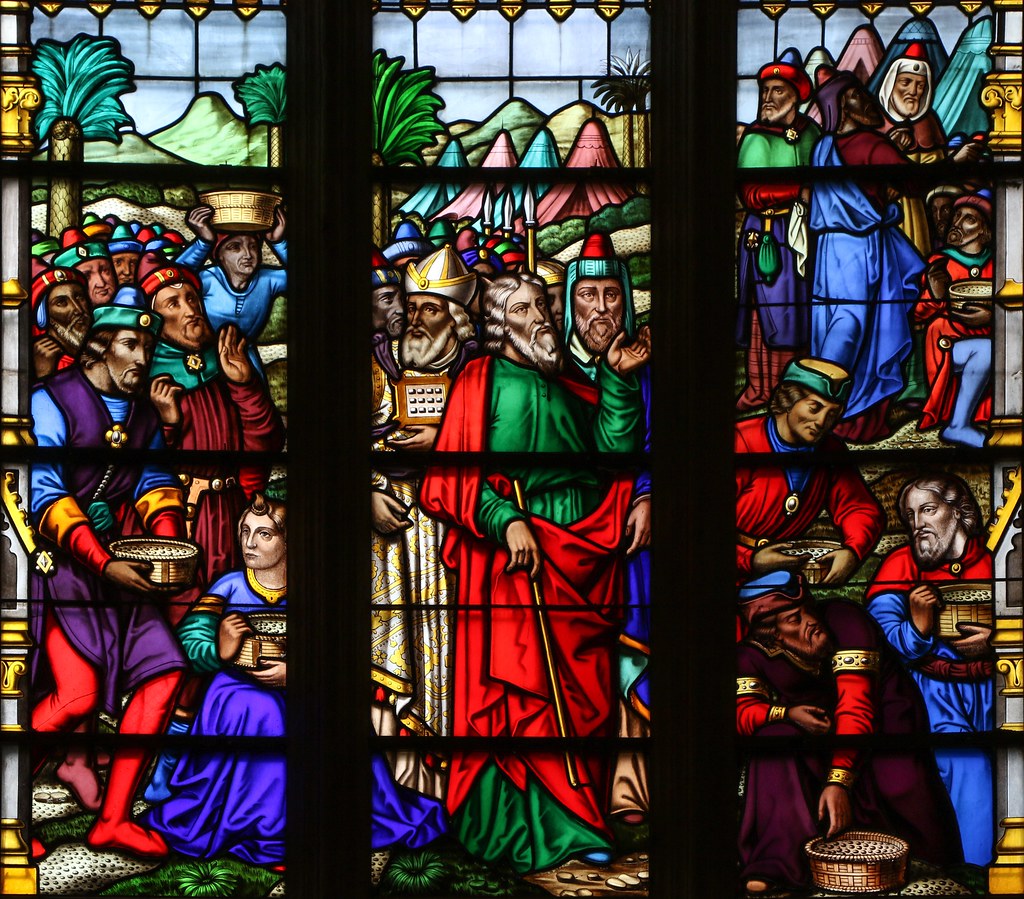In Exodus 4, we witness a pivotal moment in the life of Moses, the chosen leader of the Israelites. The chapter begins with Moses expressing doubt and concern about his ability to fulfill the task that God has given him – to confront Pharaoh and demand the freedom of the Israelites from their enslavement in Egypt.
God responds to Moses’ hesitation by equipping him with miraculous signs to authenticate his authority. First, God commands Moses to throw his staff on the ground, which transforms into a serpent. God then instructs Moses to pick up the serpent by its tail, and it once again becomes a staff. This powerful sign is a reassurance of God’s presence and power with Moses as he faces Pharaoh.
Next, we witness another miraculous sign, as God tells Moses to put his hand inside his cloak. When Moses takes his hand out, it is leprous, but he is instructed to put it back in, and when he pulls it out again, it’s perfectly healthy as before. These signs are meant to demonstrate to Moses that God has the authority and ability to perform wonders through him, convincing both the Israelites and Pharaoh of God’s presence and sovereignty.
Despite these powerful signs, Moses is still apprehensive and feels inadequate. He expresses his difficulty in speaking, feeling that he is not eloquent enough to perform the task entrusted to him. In response, God reassures Moses that He is the one who gives people the ability to speak, and promises to be with his mouth and teach him what to say.
It is here in Exodus 4:14 that we find an intriguing link to Messianic Jesus. God, aware of Moses’ insecurities, offers Aaron, Moses’ brother, to act as his spokesperson, to speak on his behalf. This foreshadows Jesus, the Messiah, who would also have an intermediary role as the ultimate spokesperson and intercessor between God and humanity.
Just as Aaron served as a mediator for Moses, Jesus serves as the mediator between God and humanity. Jesus, in his role as the Messiah, represents humanity before God, acting as the perfect spokesperson who intercedes on our behalf. This connection draws a parallel between the commissioning of Moses and the Messianic role of Jesus.
Furthermore, Moses’ doubts and fears mirror the initial hesitation of Jesus’ own disciples in accepting and understanding His Messianic mission. Just as Moses questioned his abilities, the disciples struggled to comprehend the full extent of Jesus’ identity and purpose. However, both Moses and the disciples experienced God’s faithfulness and power, which ultimately transformed their doubts into unwavering faith.
Moreover, the miraculous signs that God bestows upon Moses signify His divine authority and power. In a similar vein, Jesus performed numerous miracles during His ministry, demonstrating His divine authority and power over nature, sickness, and even death. These signs served a twofold purpose: to authenticate Jesus’ identity as the Son of God and to affirm the fulfillment of Old Testament prophecies pointing to the coming of the Messiah.
The parallels between Moses and Jesus extend beyond Exodus 4. Both individuals were called by God for a specific mission and faced opposition and persecution. Moses was met with resistance from Pharaoh and the Egyptian authorities, while Jesus encountered opposition from the religious elite of His time.
Additionally, Moses led the Israelites out of their bondage in Egypt, a physical deliverance, just as Jesus came to offer humanity spiritual deliverance from the bondage of sin. Both leaders were willing to sacrifice themselves for the sake of their respective people. Moses interceded on behalf of the Israelites when they sinned against God, and Jesus became the ultimate sacrifice, reconciling humanity with God through His death on the cross.
In conclusion, Exodus 4 showcases the doubts, fears, and reassurances given to Moses as he embarks on his mission to lead the Israelites out of Egypt. This chapter establishes a connection to Jesus as the ultimate Mediator and fulfillment of Messianic prophecies. The parallels between Moses and Jesus emphasize the divine authority, power, and sacrificial nature of both individuals, highlighting God’s ultimate plan of redemption for humanity through the Messiah.
#Exodus4 #MessianicJesus #MiraculousSigns #DoubtAndFaith #DivineAuthority #Messiah #Intercessor #BiblicalReflections #GodsCalling #MessianicLinks #DivineReassurance #Moses #Jesus #Mediator #FaithJourney #Miracles #DivineMission #SacrificialNature


